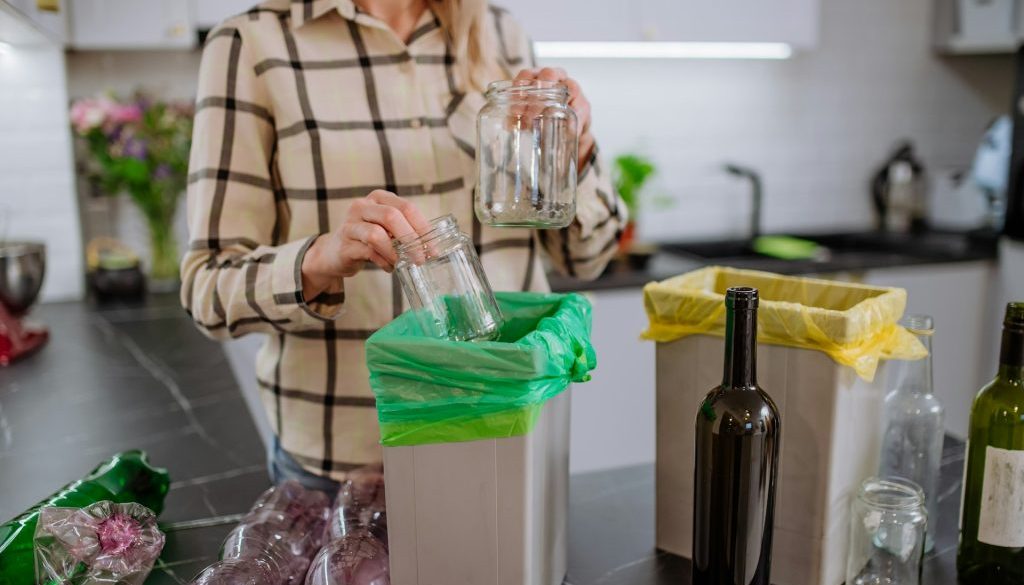Hazardous waste is found in many homes and workplaces, often without us realising its hidden risks. Items like chemicals, batteries, and paints are more than everyday materials; they can harm both health and the environment if not handled correctly. Managing these wastes responsibly is crucial to prevent pollution and protect our communities.
Understanding Hazardous Waste
Hazardous waste includes substances that can be harmful to the environment or human health. These are not limited to commercial products like industrial chemicals; many are commonly found at home. Typical household hazardous waste items include cleaning agents, batteries, paints, and pesticides. Commercial examples range from medical waste to electronic components.
Proper disposal of hazardous waste is vital for several reasons. It prevents pollutants from seeping into the soil, contaminating water sources, and dirtying the air. When such waste is mishandled, the resulting pollution leads to adverse health effects, including respiratory issues and skin irritations, and can even disrupt local ecosystems.
Improper disposal poses significant risks. For instance, pouring chemicals down the sink might damage plumbing, eventually polluting water systems. Burning hazardous materials releases toxic fumes, polluting the air. These practices compromise public health and the environment, underlining the importance of correct hazardous waste management. Failing to dispose of hazardous waste properly could lead to long-lasting harm, making awareness and responsible actions paramount.
Dos of Hazardous Waste Disposal
Disposing of hazardous waste correctly involves following some simple yet crucial dos to ensure safety and environmental protection.
- Use Designated Facilities: Check for local disposal or recycling centres specifically designed for handling hazardous waste. These facilities ensure that waste is treated and disposed of in an environmentally safe manner.
- Read Labels and Instructions: Procedures for disposing of hazardous waste can vary by product. Reading and following the manufacturer’s disposal instructions on the label ensures you follow legal and safety guidelines.
- Store Waste Safely: While waiting for disposal, hazardous materials should be stored securely to prevent leaks, spills, and accidents. Use original containers, properly sealed, and kept in a cool, dry place away from children and pets.
Incorporating these practices aids in reducing the potential dangers posed by hazardous waste. Proper storage also reduces the risk of accidental exposure or release into the environment. Doing so not only ensures compliance with local laws but also contributes significantly to public safety and environmental sustainability. Adopt these simple steps, and you can effectively manage hazardous waste disposal with minimal impact on your home and community.
Don’ts of Hazardous Waste Disposal
Improper disposal of hazardous waste can lead to severe consequences, but by understanding the common mistakes, you can help prevent these issues.
- Avoid Mixing with Regular Rubbish: Hazardous waste should never be tossed in with regular rubbish. Doing so poses a risk at every stage, from collection to final disposal, potentially affecting waste workers and the environment. Keep hazardous materials separate for safe processing.
- Do Not Pour Down Drains: Many assume that drains, sinks, and loos are appropriate disposal routes for liquid waste. This is not true for hazardous substances. Pouring them down any drain can lead to water pollution, affecting aquatic life and the quality of drinking water.
- Refrain from Burning or Burying Waste: Though it might seem convenient, burning hazardous waste releases toxins into the air. Burying it runs the risk of contaminating soil and groundwater. These disposal methods are dangerous and illegal in many areas.
Recognising these don’ts highlights the importance of proper disposal procedures. Avoiding these mistakes protects both the environment and public health, ensuring that hazardous waste is managed responsibly.
Local Resources and Support
Effectively managing hazardous waste disposal involves accessing local resources and support systems that are readily available to assist you.
Many communities offer designated disposal sites where hazardous materials can be handed over for proper management. These facilities are equipped to deal with such waste safely, ensuring minimal environmental impact. Additionally, some areas organise community collection events, providing easy access to disposal services.
Local councils are valuable points of contact for guidance. They can provide information about local regulations, available facilities, and the best practices for disposing of hazardous waste. Their support helps clarify any uncertainties you might have about specific waste items.
Engaging in workshops or meetings focused on waste management can enhance your understanding and provide practical skills for handling hazardous waste safely.
Conclusion
Disposing of hazardous waste correctly is a responsibility that protects our environment and keeps communities safe. By understanding what constitutes hazardous waste, adopting best disposal practices, and making use of local resources, individuals can make a significant impact. Awareness and careful handling prevent the wide-ranging negative effects of improper waste disposal.
Waste management doesn’t have to be challenging, especially when supported by community resources and expert guidance. Making informed choices ensures that hazardous materials are handled responsibly and sustainably.
Looking to dispose of hazardous waste safely and efficiently? Contact Enviro Skip Hire for guidance tailored to your needs. We provide expert advice and reliable services that make hazardous waste disposal straightforward. Visit our website to learn more about how we can assist you in responsibly managing waste.




